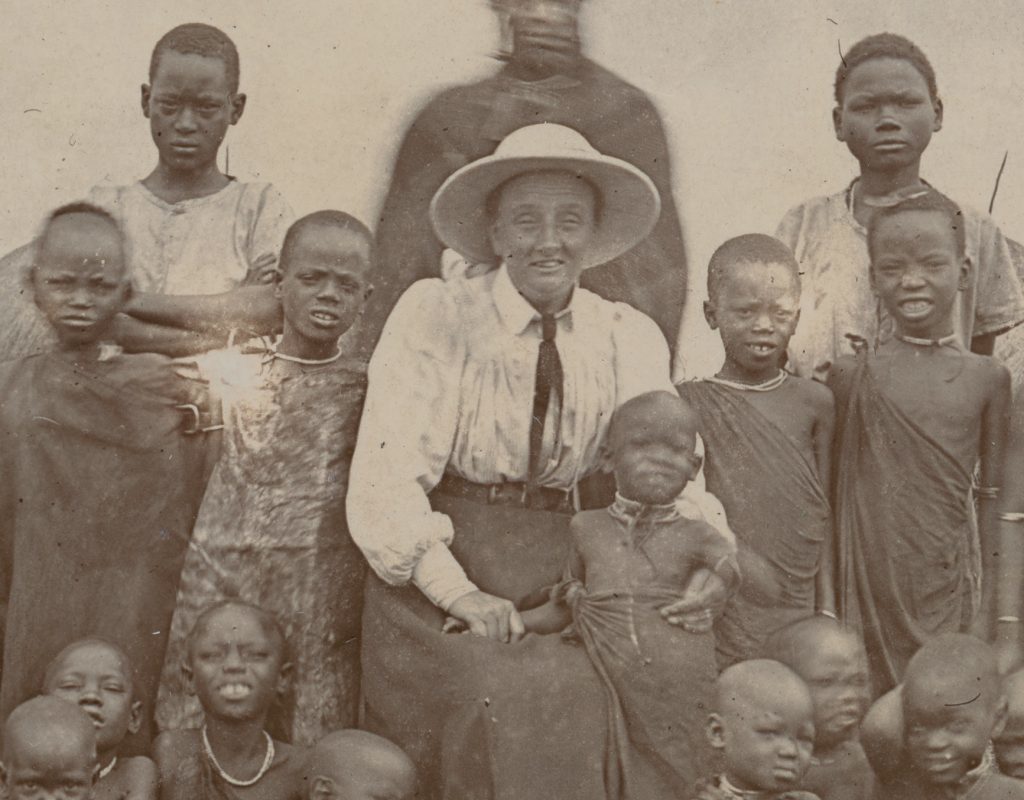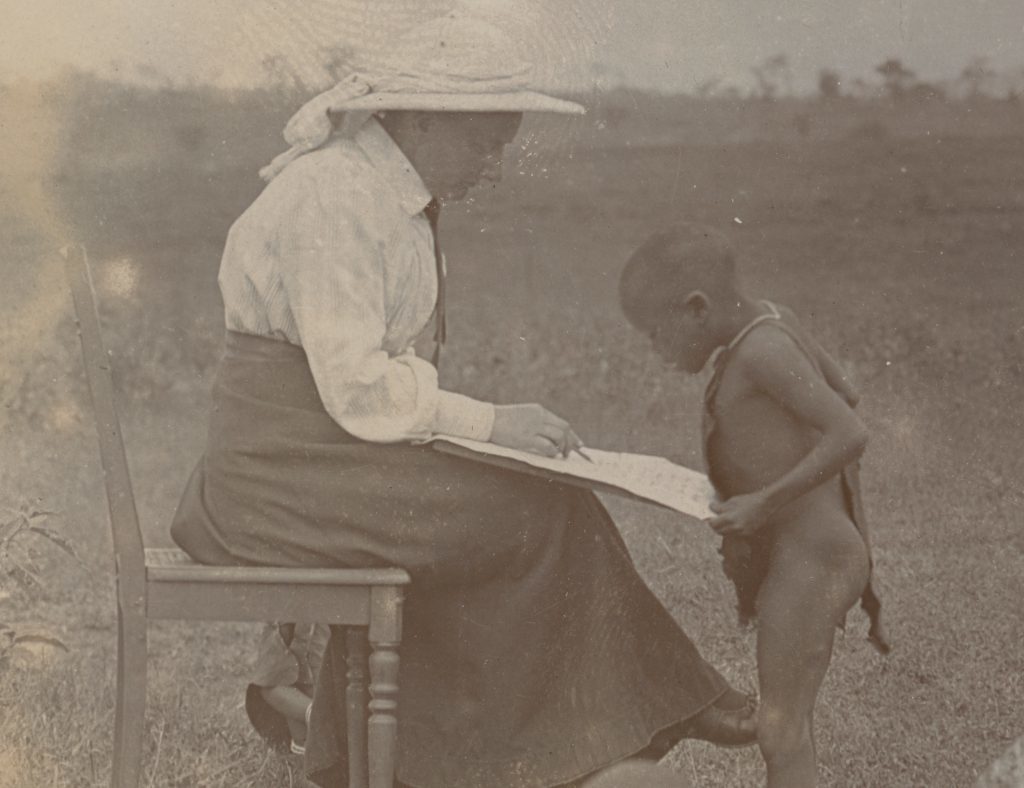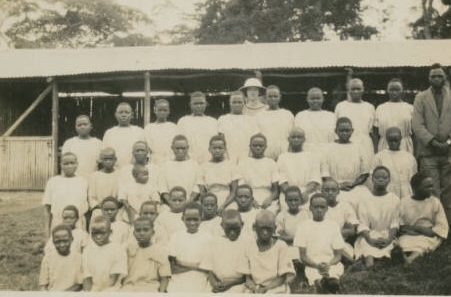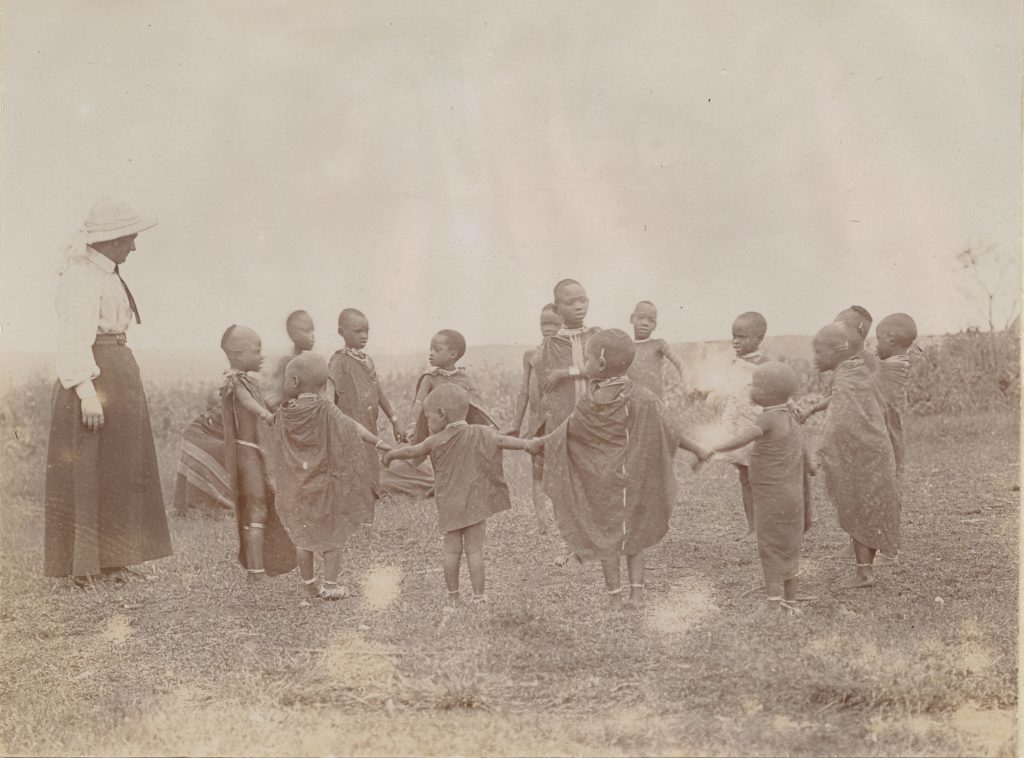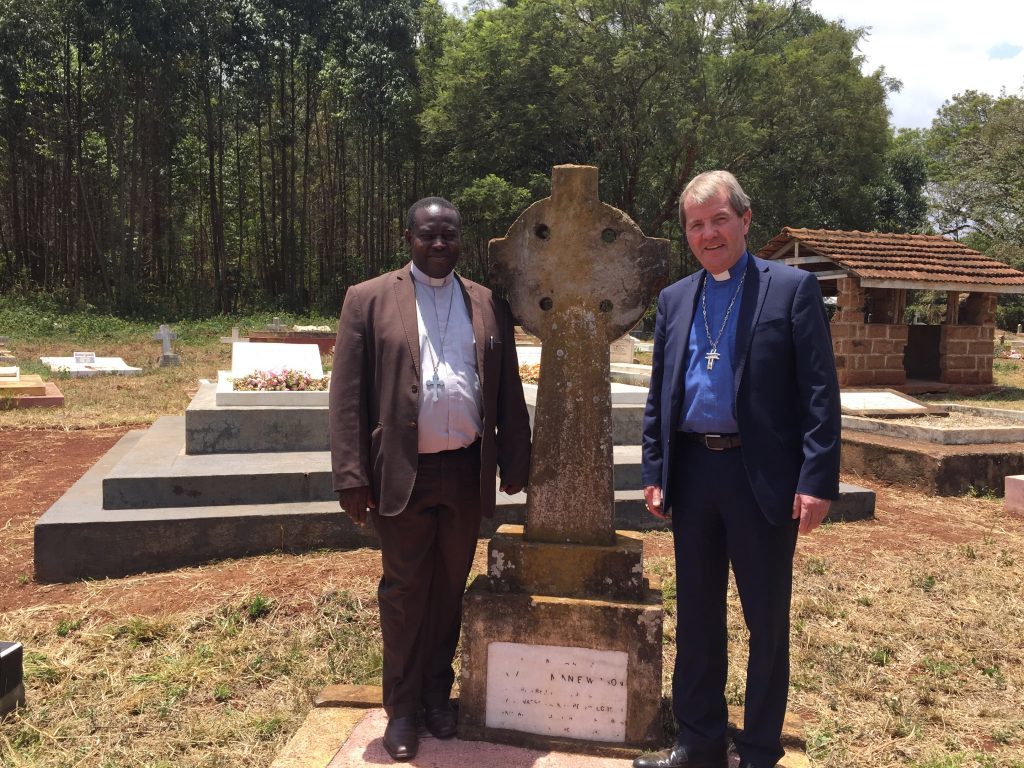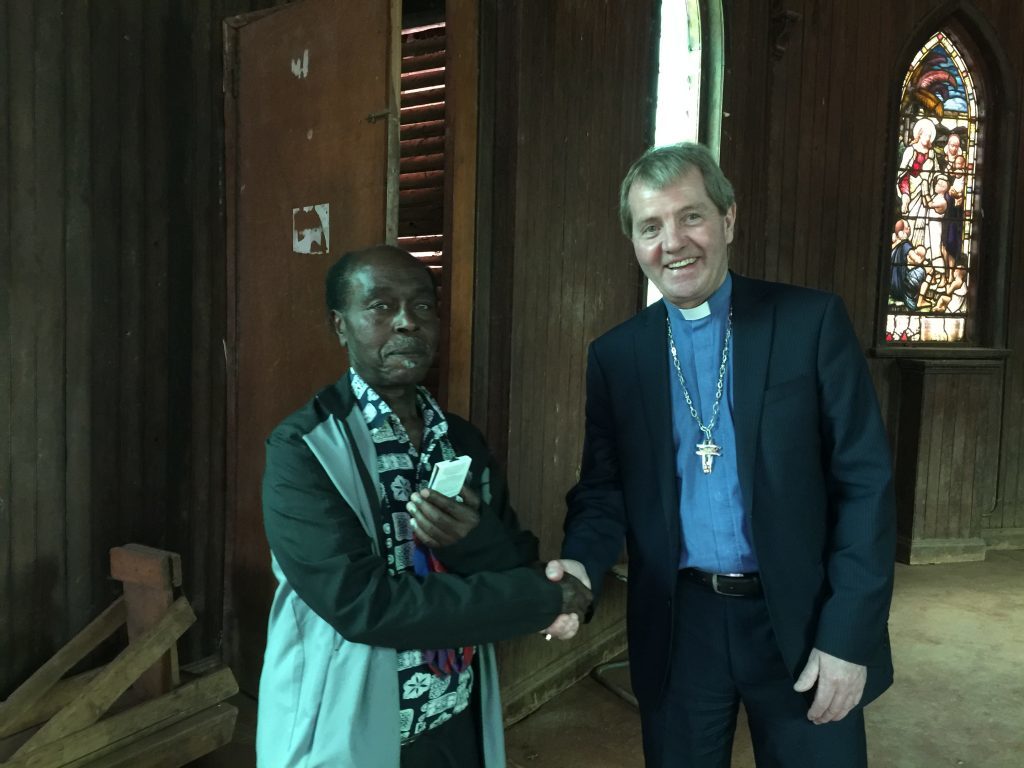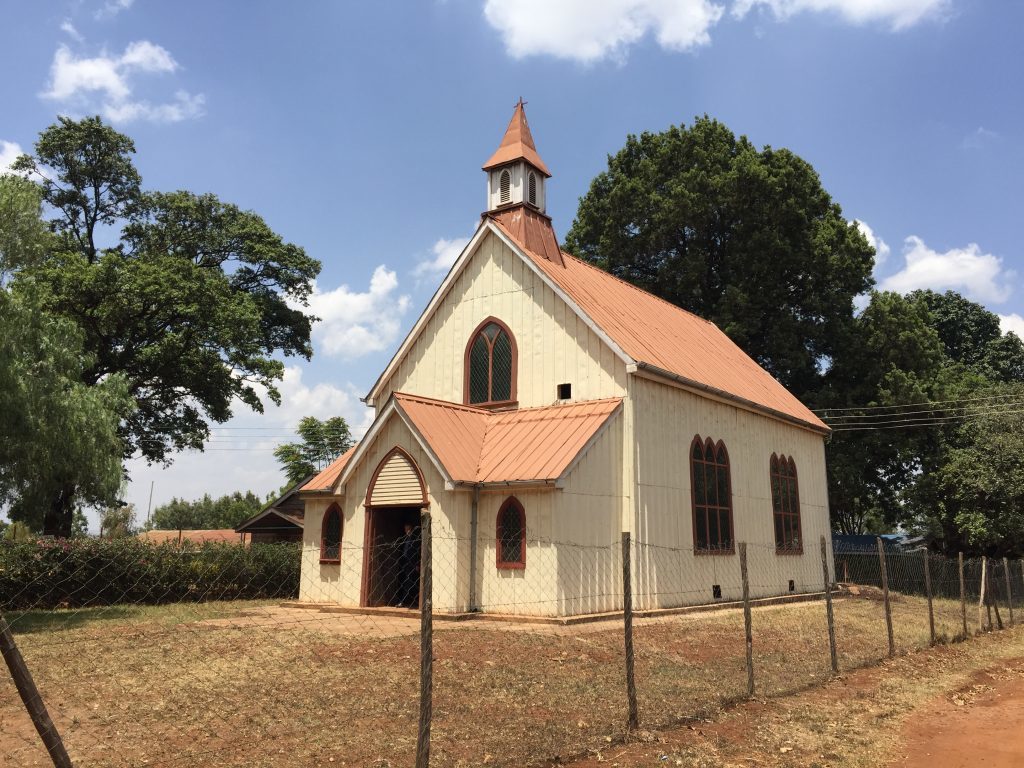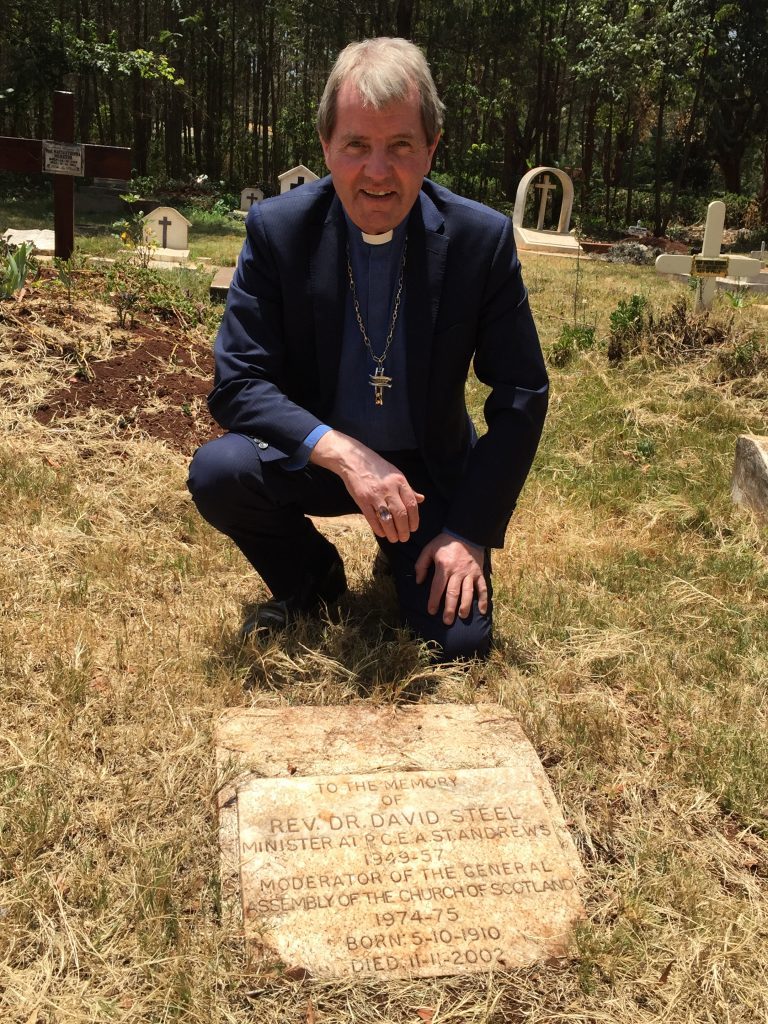The Moderator of the General Assembly of the Church of Scotland, Right Rev Dr Russell Barr, has retraced the steps of “courageous” Dundee woman Minnie Watson who helped lay the foundations of the Presbyterian Church of East Africa. Michael Alexander reports on an extraordinary legacy.
Smiling for the camera while wearing a safari-style hat and neck tie, the Dundee-born teacher and missionary looked perfectly at ease as she posed for the camera alongside a group of children dressed in traditional Kenyan clothing.
The drought, famine and disease Minnie Watson endured in East Africa in the early 20th century was a world away from the poverty being experienced by many working people thousands of miles away in her home town of Dundee.
But as the first female Presbyterian Missionary in Kenya, Mrs Watson overcame these extreme hardships alongside the Kenyans to fulfil her mission of spreading the Gospel.
Today, it’s another Presbyterian Missionary from Dundee – Mary Slessor – who often comes to mind when thinking of those who left a dramatic and lasting impact on generations of Africans.
But Minnie Watson was just as courageous and, almost 70 years after her death, the extraordinary legacy of the ship captain’s daughter lives on.
She helped lay the foundations of the Presbyterian Church of East Africa (PCEA) which today has around 3.5 million members and runs a network of schools, hospitals and universities.
Born in 1867, Minnie Watson followed her fiancé, the Rev Thomas Watson, who was also from Dundee, to the former British colony in 1899 after he established the Scottish Mission in Thogoto, Kikuyu.
They soon married, but barely a year later, he died of pneumonia leaving the “devoted” 32-year-old to assume responsibility for the mission.
Education and welfare was Mrs Watson’s primary focus and she established an extensive network of Mission Schools for girls and boys.
Kenya’s first President Jomo Kenyatta, father of the current President Uhuru Kenyatta, is a former pupil and was baptised in Watson-Scott Memorial Church.
It was prefabricated in Scotland at the turn of the 20th century and shipped 7,150 miles to Kikuyu.
The Scottish Mission was originally funded by Christian directors of the Imperial East Africa Company but was taken over by the Church of Scotland 12 months after Mr Watson died.
Mrs Watson, who was head teacher of the Mission Schools system, was described by former pupils as an outstanding Christian role model – always loving, humble, patient but strict when necessary.
She served in Kikuyu for more than 30 years before retiring to Dundee where she died in 1949 at the age of 82.
Mrs Watson’s ashes were returned to be buried beside her husband’s remains in the cemetery, located next to the 108-year-old church named after them and Dr Henry E Scott, a former Scottish Mission leader.
Right Rev Dr Russell Barr, Moderator of the General Assembly of the Church of Scotland, visited the couple’s grave to pay his respects earlier this month, with a film ‘From Dundee to Kenya’ compiled for Youtube by Church of Scotland spokesman Cameron Brooks.
The grave is marked by a large stone Celtic Cross, and the now faded inscription on the memorial stone once said: “They brought the light of God to the Kikuyu people.”
Dr Barr, who noted the church had found its own “heart, soul and voice”, said it was a “great privilege” to visit Kenya and the Presbyterian Church of East Africa.
He added: “Although the PCEA has long found its African heart and its African soul and its African voice, it was Church of Scotland missionaries who first planted the seeds of Christian faith
“Prominent among them were the Rev Thomas and Minnie Watson, who established a mission at Kikuyu.
“It was quite humbling to stand at their graveside and to realise how their courage, devotion and Christian faith has been rewarded in the vibrant and growing church that is the PCEA.”
Professor David Ngugi, a Church of the Torch elder, said Scottish missionaries had a “big impact” on the Kikuyu people.
“They were very focused in spreading the Gospel and education because at that time Kenya was regarded as the Dark Continent,” he added.
“The missionaries planted several schools, improved health by setting up hospitals and fought poverty by starting agricultural industries.
“Many people in Kenya have benefited from that legacy and the impact of Minnie Watson still lives on.”
The relationship between the Church of Scotland and PCEA remains strong.
Dr Barr handed over £6,000 donated by Kirk members to help pay for a drinking water borehole at the Mother Esther Boarding School and Rescue Centre in Maasai land.
He also presented a cheque for £10,000 to the leaders of the PCEA Boys and Girls Brigade.
The money was raised by the Boys Brigade in Scotland for the BB World Mission Fund and will be used to make uniforms for Kenyan youngsters.
